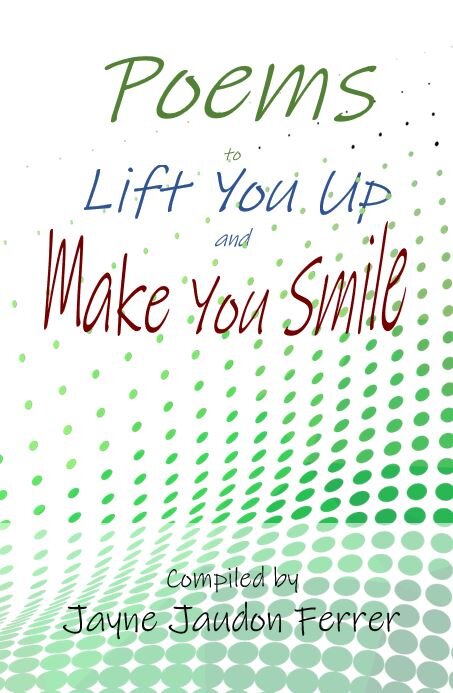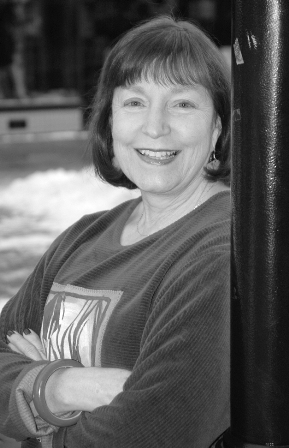 |
Login |
| Poetry Cam |
| Poetry News |
| Poet Profiles |
Company Email:

Ask for this YDP anthology at your favorite bookstore or order it online today!
Barbara Crooker is one of the most prolific poets I know. Name an occasion, a situation, a food, an animal, a flower . . . she’s probably written about it! Invited to be a fellow at the Virginia Center for the Creative Arts fourteen times in the past twenty years, and featured on The Writer’s Almanac eighteen times, Barbara has read her poetry all over the country—from Portland, Oregon to Portland, Maine—including The Calvin Conference of Faith and Writing, The Austin International Poetry Festival, Glory Days: A Bruce Springsteen Symposium, and the Library of Congress. Why poetry?
The short answer to this is, “Why not poetry? As Samuel Coleridge said, “best words, best order.” But it’s like falling in love; who knows why, exactly? You just know that you have, and you enjoy the ride.
How did you come to be a poet?
I was in my late 20s. I had taken one creative writing class as an undergraduate, but now was a single mother with a small child going through a divorce. One day I picked up a copy of a little magazine from Mansfield State Teachers College in northern Pennsylvania that had some poetry in it, and it blew me away. These poems were written by Diane Wakoski, who I thought, in my ignorance, was an undergraduate there. I was fascinated: How did she do that? How did she say so much in so few words? If I'd realized she was a famous writer, I’d have been intimidated, but I didn’t know this, so I read her work over and over, trying to figure out how she got from point A to point B. Then I thought, “Well, maybe I could do something like that.” So I wrote a couple of poems which pleased me when they were done. And then I kept writing, one poem following another for about a year, when I met my second and current husband. When we decided to get married, he asked me if I would like to go to a summer writing conference or get an engagement ring. I chose the conference, and that’s where I learned about the world of small press magazines, learned about how to find and read contemporary writers, learned how to submit properly to journals. And so, my writing life began.
Do you have favorite poets or poems?
There are so many good writers out there right now; it’s good to be alive and writing in this company: Tony Hoagland, Albert Goldbarth, Jane Hirshfield, Philip Levine, Bob Hicok, Dick Allen. Mary Oliver, Sharon Olds, Brigit Kelly, Charles Wright, Christopher Buckley, Dorianne Laux, Kim Addonizio, Linda Pastan, Maxine Kumin, Billy Collins, Stephen Dunn, Stephen Dobyns, Marilyn Hacker, Fleda Brown, Jeanne Murray Walker, Mark Doty, Alicia Ostriker, Philip Levine, Ted Kooser, Ron Wallace, David Kirby, Barbara Hamby. And that’s just to name a few.
What's the most interesting "poetry pilgrimage" you've ever made?
My husband, son and I were meeting my husband’s brother and his wife at the NY Botanic Garden to see the Emily Dickinson gardens recreated there, along with a replica of the front of her house. When we arrived, we found out that there was also an Emily Dickinson marathon reading going on, where readers signed up to read her complete work straight through in fifteen minute increments. I saw that two of my poet friends had already read earlier in the day, and that there were still a few time slots open. I asked “the gang” if they wouldn’t mind indulging me, and so I was able to participate. It was magical. Afterwards, my brother-in-law asked me how was I able to have rehearsed, as obviously we were all together from the time I signed up until the time I took the podium for the reading. But such is the power of Dickinson’s work, that even a cold reading of the less-well known poems and unfinished fragments could move an audience.
In the great scheme of things, where does poetry fit in?
We all know what Auden said, that “poetry makes nothing happen,” and yet, and yet. When the events of September 11 occurred, it was poetry that people turned to, that people passed around the Internet (the Psalms, Auden’s poem, “September 1939,” “The Terrorist” by Stephen Dunn). It’s poetry we turn to in times of great sadness or great joy. “The purpose of art is to stop time,” said Bob Dylan, and this is the only way we can do it.
Describe your writing routine and/or process.
Most of my work starts with something small, an image, a line, an emotion. I write pages and pages of really bad prose until something good starts happening and something that begins to resemble poetry emerges. Mary Oliver says that writing a poem is an act of "slow and deep listening," and I couldn't agree with her more. When something starts to gel in this mess of bad writing, then I start working on it as a poem, paying attention to line length and music, looking for the bits of gold in the pan, which is mostly sand and debris.
Most of my poems go through 25-30 drafts, and I'm a very slow writer compared to some of my peers, with maybe 10-12 "keepers" a year. But who's counting? I'd rather write one good poem than twenty-five mediocre ones. What's the most absurd thing you've ever written a poem about?
Probably one that I’m currently working on, which somehow manages to combine Spanx, the U. S. constitution, my uncle Angelo the sausage maker, and hot bacon dressing.
When/where are you most inspired?
I'd say just about everything inspires me; poems are all around. Some come from prompts I've given when I've taught workshops. Some come from "assignments" I’ve given myself, like the ghazal, which “only” took five years to write. Some poems arise from travel to places like Ireland or France, while others come from walks in the woods behind our house. Others come from reading (poetry, fiction, non-fiction), listening to music, going to art exhibits. I have a couple of poems that came from mistakes, such as the dyslexic misreading of a poem title. Some come from "the terrible news of the world." (Stephen Dunn) Some come from my own life experiences; some are conjured out of "the thin, thin air." (from my poem, "The Woman Who Called Hawks From the Sky”)
Plus, I'm a big fan of serendipity. When a bunch of goldfinches showed up in my backyard, I ended up letting them appear in two poems. Last year, I started collecting anagrams, especially the ones from the puzzle section of the daily paper, and I managed to construct a poem out of them. But that's what I do: collect images, scraps of conversation, articles, headlines, things that grab me, and then I wait for the poems to come. Above all, I'm trying to engage the heart, write poems that have emotional resonance. Otherwise, it's just decoration.
As for the “where,” much of my best work has come from my colony stays at The Virginia Center for the Creative Arts (The VCCA), in Amherst, VA. There’s nothing like spending that kind of deep time to create the kind of space in which a new poem, or series of poems, can be born. Which classic poet would you most like to meet, and why?
Since I get tongue-tied when I meet famous contemporary poets (what else is there to say except “I love your work”?), I imagine I’d be just as inept trying to converse with a classic poet.
Is there some consistent trademark or characteristic that you've discovered in your poetry?
I’m not comfortable talking about my own work, so let me quote Anne Barnhill’s comments on a poem up at this site: http://www.stringpoet.
Anything else you'd like to share—advice, anecdotes, forthcoming adventure, etc?
As far as advice goes, it would be to read, read, read more poetry, and to support other writers by buying their books. My forthcoming adventure is that the VCCA has awarded me a ten day stay at le Moulin à Nef, their studio in Auvillar, France for next October. My project is to do a series of poems based on the paintings of Henri Matisse; my “give-back” to the village of Auvillar will be to do a poetry reading. The poems will be in English, but my in-between remarks will be in French. I’m not fluent, so this will be a challenge, as will working and living in a small French village and doing the shopping and cooking. But it will be a good challenge, and I hope I can prove worthy.
--JJF Poet Profile: Barbara Crooker |
|
| Home | About Us | Contact Us | Sitemap | Bookmark Us | Website Development by Practical Business Systems |
As an Amazon Associate I earn from qualifying purchases. Purchasing books through any poet's Amazon links helps to support Your Daily Poem. The material on this site may not be copied, reproduced, downloaded, distributed, transmitted, stored, altered, adapted, or otherwise used in any way without the express written permission of the owner. |
